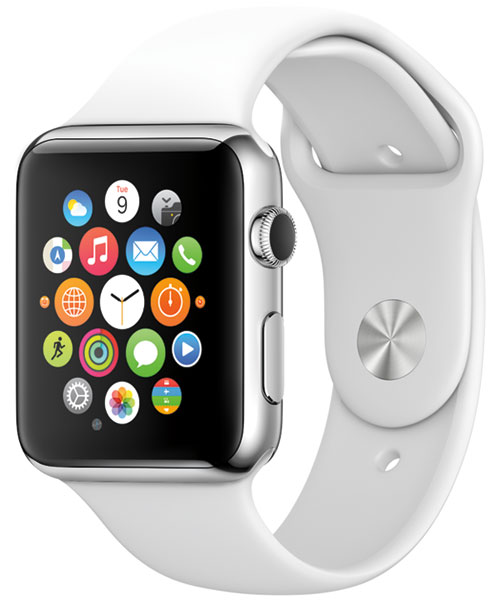
The day Apple initially picked to launch the Apple Watch was in some respects a dud.
The device was not available for sale in Apple Stores on Friday as previously scheduled, although it was available at some high-end fashion boutiques. Confusion reigned over shipments, with Apple earlier having announced that deliveries would be pushed back to June, but later saying some preorders would be shipped early after all.
Apple reportedly informed its employees of the decision to delay availability in its Apple Stores and direct customers to order the Apple Watch online in a video message from retail and online sales head Angela Ahrendts.
Apple employees were being flooded with questions from customers about the device’s availability, she said, according to accounts.
Ahrendts previously had told a complaining customer that company executives were very concerned about the launch date.
Flailing Through the Fog
The confusion over the Apple Watch launch is causing quite a bit of head-scratching. Is it a clever marketing strategy on Apple’s part — stoking demand by making a new product seem elusive and difficult to get?
Or was Apple simply caught flat-footed by the demand? The initial Apple Watch run was more than 3 million units, leading to revenue of more than US$2 billion for the first two weeks of sales, predicted Carl Howe, principal ofThink Big Academy.
“I would say that Apple’s ambiguous statement has led to the confusion,” said Nick Spencer, a senior practice director at ABI Research.
“Some customers will get them early,” he told the E-Commerce Times. “OK, so that’s great for them. But is it most customers or just a select few, and is this a way of spinning it into a good news story?”
Speculation on why the delivery date was pushed back is itself fueling buzz over the Apple Watch launch.
“My educated guess is that since this product will be sold in a different manner and more in line with the selling of luxury goods, the current Apple Genius employees may not be up to the task, and the selling process has likely emerged as the real bottleneck,” said Larry Chiagouris, professor of marketing at Pace University.
Apple is probably “running as fast as it can to staff its stores with people who know not only how to sell computers, phones and tablets, but also how to sell luxury,” he told the E-Commerce Times.
Prêt à Porter Dernier Cri
The Apple Watch’s debut in an assortment of fashion boutiques may hint at a completely different marketing strategy from Apple days gone by.
“With this watch, Apple is creating a new category,” said Susan Schreiner, senior editor and analyst at C4 Trends.
“You’re not just buying a smartwatch — you’re buying a piece of jewelry,” she told the E-Commerce Times.
The Apple Watch has “a full range of smarts and possibilities in an exciting fashion form factor. Nobody has done that,” Schreiner continued. Apple “has made this a fashion item. When it creates something, it creates buzz. It carries with it prestige.”
Apple’s also “seeding demand here in lots of different ways that have never been done before,” she pointed out. “I’m getting reports that celebs like Beyonce and George Stephanopoulos are getting the Apple watch.”
Accidentally on Purpose?
The question then must be asked, was the peculiar rollout of the Apple Watch orchestrated from the start by a marketing department known for its creative genius?
Recall that consumer demand spiked for the new Volkswagen Beetle some years ago after the carmaker announced it would be available in North America only in limited quantities. Some purchasers paid well over the list price.
BMW later used the same tactic when launching the new Austin Mini in the United States.
Both companies later made the cars widely available to the public.
Although Apple is known as a tightly buttoned-up company, there’s always the possibility that some insider could go rogue, which suggests that marketing mischief is an unlikely explanation for the Apple Watch’s absence from Apple Store shelves on launch day.
“I don’t think Apple is engaging in a clever marketing ploy, as that would ultimately be leaked and would make it look bad to the media and to consumers,” Pace’s Chiagouris said. “Apple is too image-conscious to risk that kind of blow to its reputation.”
Click here to read in the original publication.

